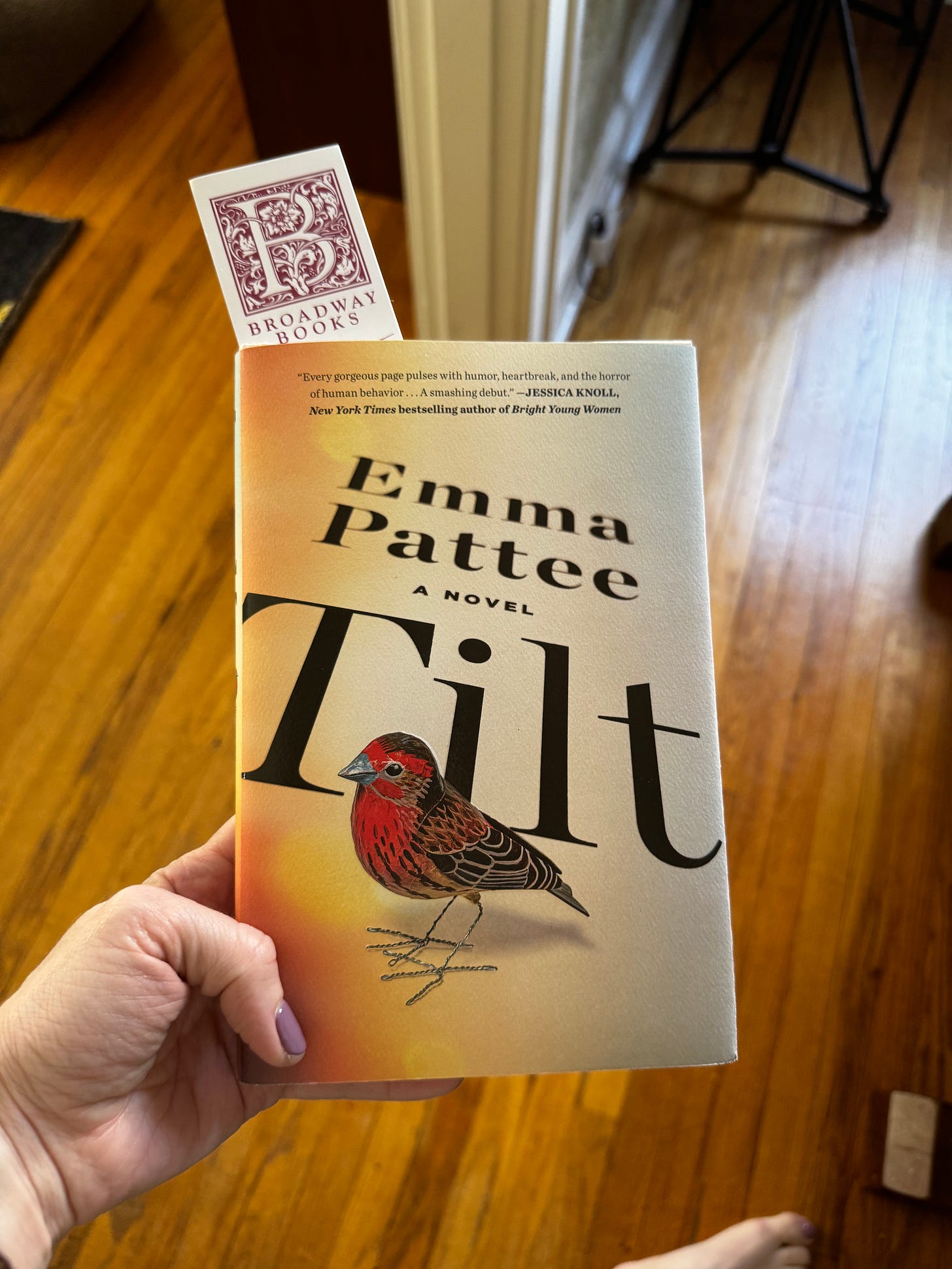Envisioning the Worst is a Way to Prepare
and a good novel like Emma Pattee's "Tilt" can help with that
I devoured Tilt on the plane to and from LA last week finishing it in its entirety (even reading the last beautiful sentences as I waited for my husband to find me at the Arrivals terminal). I began the book as we taxied on the PDX runway and somewhere mid-flight, I had to sit and breathe and listen to my Detective Sean Duffy audiobook in between because it was all too real, particularly for someone from Portland. I was flying away from the city where my child and spouse were, having taken off from the airport that is just around the corner from the IKEA in Pattee’s book. I couldn’t stop thinking about what if the earthquake happened while I was gone. I knew all of the places Annie walks past and through and could imagine every single bit of the detail Pattee describes (e.g., the collapsed Banana Republic). I was there with Annie. But in reality I was away from my husband and son (and from the rest of my immediate family most of whom were also in Portland at that same moment) and I was already picturing losing them all.
But in between the inevitable panic, I was also preparing emotionally. Preparing to figure out what to do the moment shit hits the fan. And there’s power in a compelling story to put you in that moment. Yes, it made me scared and anxious and, yes I had to stop after about a quarter of the book was done before we landed in LA. I knew that I wouldn’t be able to pick it up until I was heading back in the direction of home, but in the meantime, I planned. I thought about and vaguely mentioned it to my husband about what to do if disaster hit while I was gone.
I’ve been reading about and thinking about disaster almost daily for the last 3+ years while writing this Substack and making climate change and disaster preparedness my “beat,” if you will. And immersing myself in it has created a sort of acceptance in my mind. Of course I want to do all I can to make sure more and worse climate disasters won’t happen. But I also know they are happening and will continue to happen and we can’t just feel scared and depressed and look away. We must face the disaster and accept it in order to prepare for it.
I’ve written about this in various ways in the past, but Tilt drew me back into this idea of facing the disaster. And Emma Pattee does an exceptional job of bringing the reader along with Annie, illustrating what she is seeing and feeling and thinking in such vivid detail that you must face it head on. And you want to because you want Annie and her baby to survive and to thrive. And also you want to find out what happens next.
It is books like Tilt that help us face the worst possible thing that could happen and allows us to see that it is not an end, but a beginning. Disaster isn’t the end-of-the-world apocalypse we might think, but something that we can get through. I think disaster preparedness is similar in that the planning part of it makes you think about what could happen. It makes you face the possibility (the inevitability even) of “the worst” and could lead to an acceptance and hopefully less panic in the moment. It’s just a hell of a lot more fun to face it with a great book like Tilt than with a list of what to put in your Go Bag.




Putting this on my reading list, thanks!
The week that the lockdowns started in 2020, I reread Station Eleven for similar reasons. How did people get through that (fictional) pandemic and find meaning at the end of it? It was comforting.